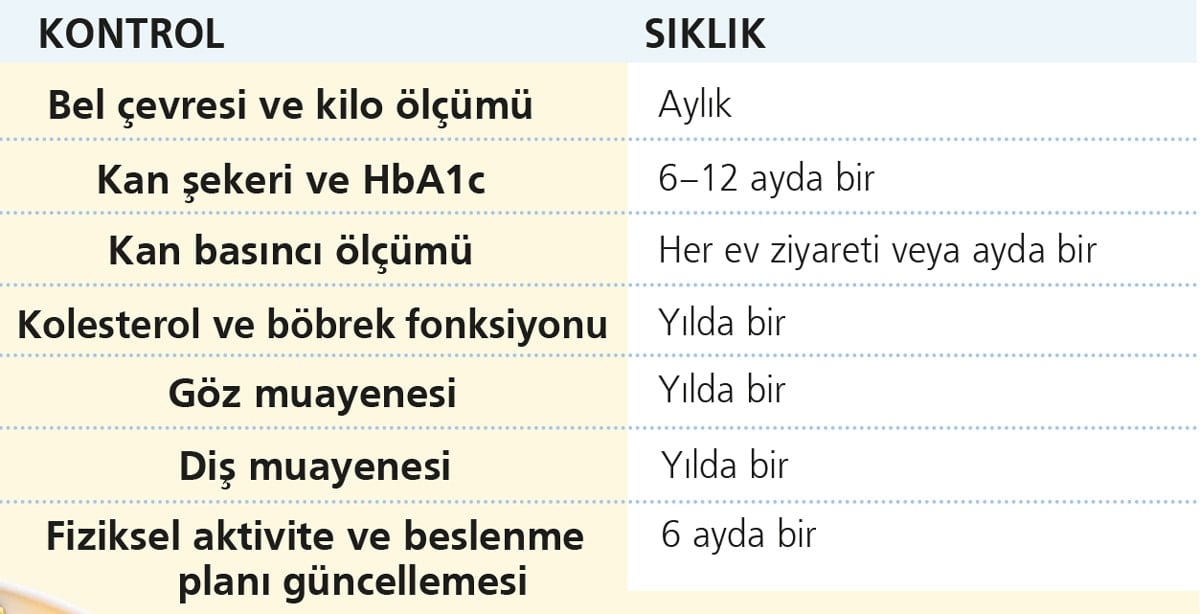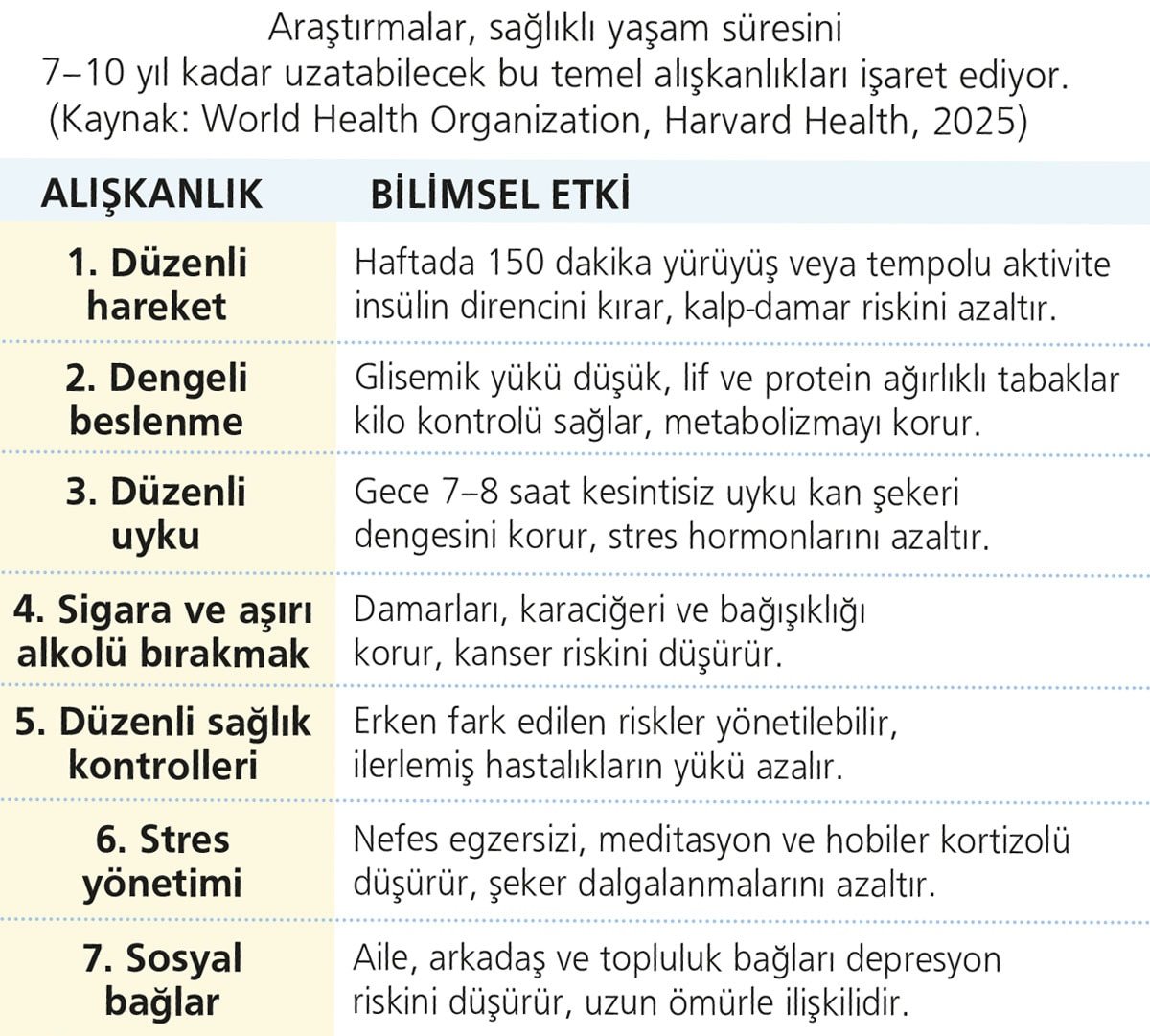Codes of healthy living

- Quality sleep
Regular sleep reduces insulin resistance and balances hunger and satiety hormones. Insomnia increases ghrelin, the hormone that increases appetite. (Source: National Sleep Foundation, 2025)
- Mental exercise
Daily reading, memory games, learning a new language, or playing an instrument strengthens brain connections and slows cognitive aging. (Source: Alzheimer's Association, 2025)
- Stress management
High stress increases cortisol levels, which triggers fat accumulation around the belly. Regular breathing exercises, meditation, and walking can lower cortisol levels. (Source: Mayo Clinic, 2025)
- Social ties
Regular contact with family and friends reduces the risk of depression and prolongs life. Loneliness can increase the risk of heart attack as much as smoking. (Source: Harvard Health, 2025)
Follow-up plan and annual checklistRegular monitoring is crucial for a healthy life. Review this list annually. (Source: American Diabetes Association, 2025)

No, it's not necessary to ban it completely. The key is to reduce portion sizes, consume less frequently, and consume dessert after a main meal. This will prevent sudden spikes in blood sugar. You can also satisfy your sweet tooth more healthily by substituting fruit or whole grains for refined sugar. (Source: Mayo Clinic, 2025)
Seven habits that extend a healthy lifespan
No. Medications are used to lower blood sugar levels to safe levels, prevent organ damage, and maintain quality of life. Starting medication early prevents long-term complications. Taking medication is not a failure; it's a step toward protecting your health. (Source: American Diabetes Association, 2025)
Which vitamins or supplements really work?If a deficiency is detected through a blood test, vitamin D, B12, iron, or magnesium supplements may be recommended. Omega-3s are beneficial for very high triglyceride levels. However, the evidence for many herbal supplements marketed as "speeding up metabolism" or "lowering blood sugar" is weak. Always consult a doctor before taking supplements. (Source: US Preventive Services Task Force, 2025)
My waist circumference is large but my weight is normal. Am I at risk?Yes. Even if you're a normal weight, if you have fat around your waist, you're still at risk. Measurements above 102 cm (42 inches) for men and 88 cm (88 inches) for women increase your risk of heart disease, diabetes, and high blood pressure. Waist circumference provides information not only about your weight but also the amount of fat accumulated around your organs. (Source: Centers for Disease Control and Prevention, 2025)
Completely cure diabetesType 2 diabetes is a chronic condition, but if caught early, blood sugar levels can return to normal and medication may be eliminated. This state is called "remission." Regular exercise, weight loss, and a healthy diet can help maintain normal blood sugar levels for extended periods. (Source: American Diabetes Association, 2025)
I can't find time to exercise. Would short walks help?Absolutely yes. Even short walks of 10–15 minutes a day are beneficial. Short walks, especially after meals, prevent blood sugar spikes. The key is consistency and approaching 150 minutes per week in total. (Source: World Health Organization, 2025)
SÖZCÜ




